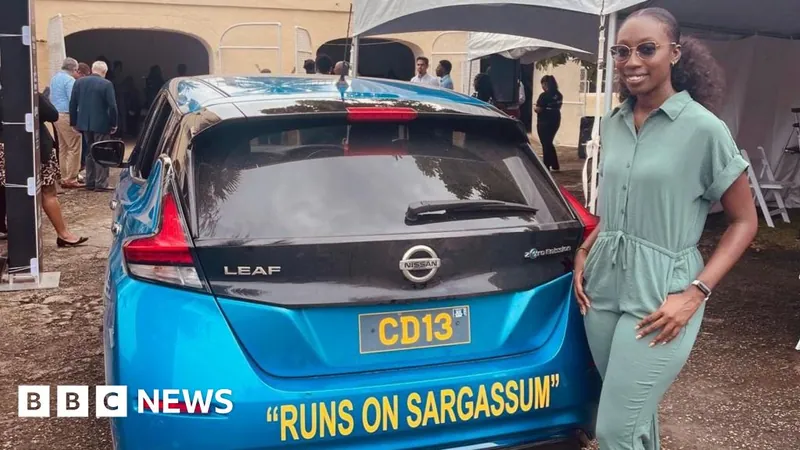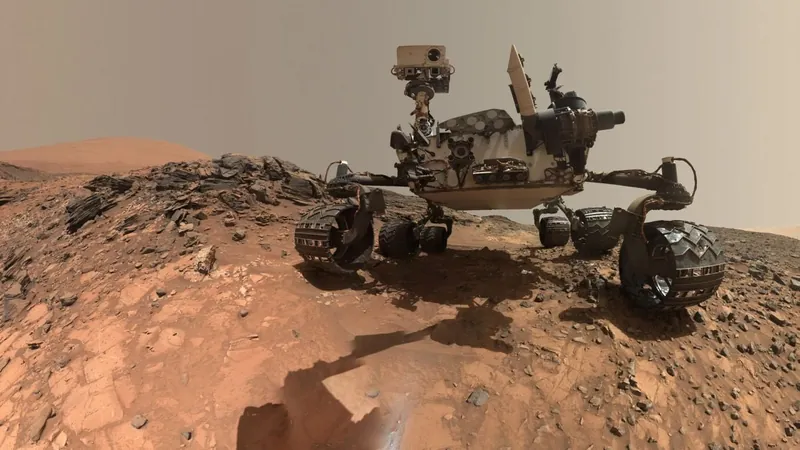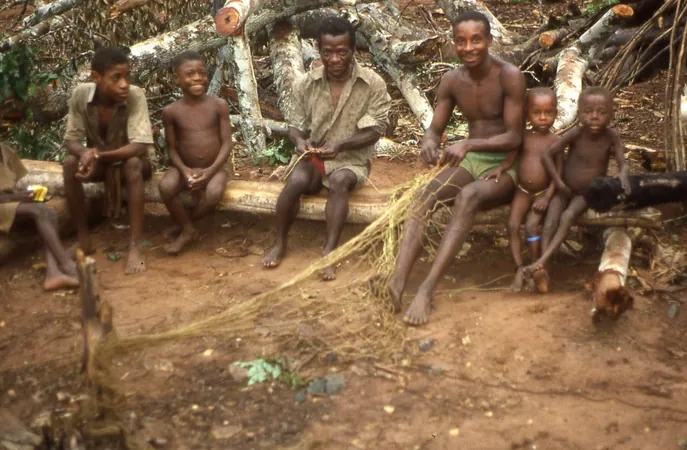
Transforming Sargassum: How Caribbean Scientists Are Turning a Noxious Seaweed into Fuel for Cars
2024-11-25
Author: Jacob
In recent years, Caribbean shores have faced an unsettling crisis with massive amounts of invasive sargassum seaweed washing ashore. This unwanted guest, originating from the Sargasso Sea, began making headlines in 2011 as it choked prized beaches, its pungent odor deterring tourists and raising concerns for the local economy reliant on tourism.
By 2018, the situation escalated to such critical levels that Barbados's Prime Minister Mia Mottley declared the seaweed invasion a national emergency. Recognizing the pressing need for a solution, a committed group of scientists and environmentalists pioneer efforts to leverage this nuisance into an innovative, eco-friendly biofuel.
Welcome to the future!
Researchers at the University of the West Indies (UWI) have pioneered the world’s first vehicle powered by bio-compressed natural gas derived from sargassum. This groundbreaking fuel also utilizes wastewater from local rum distilleries and dung from blackbelly sheep, creating a unique ecosystem perfectly suited for anaerobic bacteria production. In an impressive four-hour installation for about $2,500, traditional vehicles can be retrofitted to run on this innovative gas.
Initially, the team contemplated the use of sugarcane as a biofuel source, given Barbados's historical sugar production. However, with limited yields unable to satisfy their ambitious sustainability goals, Dr. Legena Henry—the project's visionary leader—turned her gaze toward the seaweed problem that only seemed to grow. As she wittily remarked, "Sargassum is something we will never run out of."
The dire impact of sargassum on tourism and the economy was evident; hotels were sinking significant funds into removal efforts. Inspired by the challenges around them, the idea of repurposing this algae into energy was ignited by a UWI student, Brittney McKenzie, who saw the frequency of trucks hauling away the dreadful seaweed. This sparked a small-scale research initiative that quickly gained momentum, resulting in promising discoveries within weeks.
With a patent filed, the team showcased their development during a side meeting at the United Nations General Assembly in 2019. This presentation was met with enthusiasm and support, including a generous $100,000 offer from the US non-profit Blue Chip Foundation to advance their work.
As the project developed, additional scientists like biologist Shamika Spencer joined the team to experiment with various combinations of sargassum and wastewater, striving for optimal biogas production. The environmental benefits are substantial, with sargassum not only threatening tourism but also posing serious health risks due to the toxic hydrogen sulfide released upon decomposition.
The seaweed influx has been attributed to factors such as climate change, warming seas, and water pollution—issues that the Caribbean region confronts daily despite contributing little to their cause. Regional leaders are advocating for "eco reparations" as a means to combat the deleterious effects of climate-turned crises. Yet, against this backdrop of environmental turmoil, the biofuel project represents a glimmer of hope—an example of innovation rooted in necessity.
As the team gears up for larger scale operations, Dr. Henry and her husband, Nigel, have established Rum and Sargassum Inc. with aspirations to reshape energy production across the region. Their vision includes expanding to a biogas station capable of servicing numerous vehicles, with future projects exploring other applications of sargassum—like pest control products.
Reflecting on their journey, both researchers and students find motivation in the tangible progress made. "It’s heartwarming to witness our research materializing into real-world solutions," states Ms. Spencer. For Brittney, the exhilarating sight of a biogas-powered car was validation of an idea that could spark change, urging young scientists everywhere to pursue their inventions: “You never know when you might make the next big discovery!”
Ultimately, what began as a public nuisance may lead to multi-faceted energy solutions for not just the Caribbean, but regions globally affected by sargassum, including parts of West Africa, Florida, and beyond. "This is a big win for the Caribbean," asserts Dr. Henry, emphasizing the potential of their innovation to impact the world, proving that even the most troublesome challenges can become valuable assets.









 Brasil (PT)
Brasil (PT)
 Canada (EN)
Canada (EN)
 Chile (ES)
Chile (ES)
 España (ES)
España (ES)
 France (FR)
France (FR)
 Hong Kong (EN)
Hong Kong (EN)
 Italia (IT)
Italia (IT)
 日本 (JA)
日本 (JA)
 Magyarország (HU)
Magyarország (HU)
 Norge (NO)
Norge (NO)
 Polska (PL)
Polska (PL)
 Schweiz (DE)
Schweiz (DE)
 Singapore (EN)
Singapore (EN)
 Sverige (SV)
Sverige (SV)
 Suomi (FI)
Suomi (FI)
 Türkiye (TR)
Türkiye (TR)